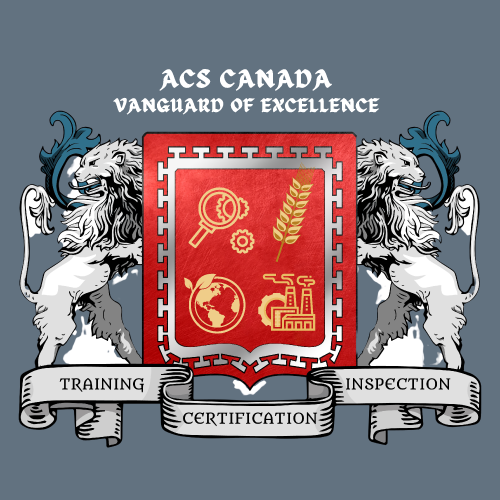GSP CERTIFICATION

GOOD STORAGE PRACTICE CERTIFICATION
Storage and distribution play vital roles in supply chain management across various industries. Numerous individuals and entities are responsible for handling, storing, and distributing products. Throughout the supply chain, products can be exposed to various risks during procurement, storage, distribution, transportation, repackaging, and relabeling.
Good Storage Practice (GSP) encompasses a range of requirements and guidelines aimed at ensuring the proper storage and distribution of products in various industries. Adhering to GSP helps minimize the risk of contamination, spoilage, and other quality issues that can arise during storage and transportation. Here are some key requirements and considerations for implementing GSP:
1. Facility Design and Layout: The storage facility should be designed and laid out in a manner that promotes efficient and safe storage practices. Factors to consider include appropriate temperature and humidity control, proper ventilation, adequate lighting, segregation of different product categories, and sufficient space for movement and access.
2. Temperature Control: Maintaining the correct temperature is crucial for preserving the quality and safety of products. Storage facilities should have temperature monitoring systems, calibrated temperature control equipment, and procedures for regular temperature checks and records.
3. Hygiene and Sanitation: Cleanliness and hygiene are essential in storage areas. Regular cleaning, sanitization, and pest control measures should be implemented to prevent contamination. Proper waste management practices and separate areas for waste disposal should be in place.
4. Stock Rotation and FIFO: Proper stock rotation techniques, such as the First-In, First-Out (FIFO) principle, should be followed to ensure older products are used or dispatched before newer ones. This helps prevent stock spoilage and wastage.
5. Packaging and Labeling: Products should be appropriately packaged to maintain their integrity during storage and transportation. Packaging materials should be suitable for the specific product, protecting it from environmental factors and potential contamination. Clear and accurate labeling of products is essential for traceability and identification.
6. Handling and Storage Practices: Correct handling procedures, including proper lifting techniques and the use of appropriate equipment, should be followed to avoid damage to products and minimize the risk of accidents. Storage practices should ensure that products are stored in suitable conditions, protected from moisture, direct sunlight, and other potential hazards.
7. Inventory Management and Record-Keeping: Effective inventory management systems, including accurate records of incoming and outgoing products, enable efficient tracking and control. These records should include product details, batch numbers, expiration dates, and any other relevant information necessary for traceability.
8. Training and Personnel: Proper training and education programs should be provided to staff involved in storage and distribution activities. This includes training on GSP requirements, hygiene practices, product handling, and emergency response procedures. Regular refresher courses and evaluations help ensure that employees remain updated and compliant with GSP guidelines.
Implementing GSP requirements and obtaining certification from a reputable body like ACS Canada provides numerous benefits. It demonstrates your commitment to maintaining product quality and safety, enhances consumer trust, and positions your organization as a reliable partner in the supply chain. GSP certification also helps ensure compliance with regulatory requirements, reduces the risk of product recalls or withdrawals, and improves overall operational efficiency by minimizing product loss, waste, and associated costs. By partnering with ACS Canada, you gain access to their expertise in auditing and certification, enabling you to continuously improve your storage practices and meet internationally recognized standards.
By obtaining GSP certification from ACS Canada, numerous benefits can be realized:
1. Prove Proper Design and Implementation: Certification demonstrates that your distribution and traceability systems are well-designed and effectively implemented, meeting international standards and best practices.
2. Assurance of Product and Consumer Safety: GSP certification provides evidence that your storage system poses no risk to products or the end consumer. It affirms your commitment to maintaining product integrity and safeguarding consumer health and safety.
3. International Recognition: ACS Canada's certification signifies that your storage system operates at an international level, demonstrating reliability and compatibility with global industry standards. This recognition enhances your reputation and facilitates international trade opportunities.
4. Reassurance to Upstream Companies and Inspection Agencies: Certification from ACS Canada reassures upstream companies, suppliers, and food inspection agencies that your storage practices meet stringent requirements. In the event of a product recall or urgent retrieval, your compliant storage system ensures swift and efficient action.
Auditing and receiving a certificate from ACS Canada, which is accredited to issue ISO 9001 certificates by the IAS-IAF, further enhances the value of GSP certification. This accreditation highlights the credibility and expertise of ACS Canada in assisting organizations across industries in meeting globally recognized quality and management standards. By obtaining this prestigious certification, you demonstrate your unwavering dedication to excellence in storage practices and gain a competitive edge in the market.
ACS Canada's comprehensive certification services, coupled with their ISO 9001 accreditation, establish them as a trusted partner in ensuring that your organization's storage and distribution activities adhere to the highest industry standards. By partnering with ACS Canada, you gain access to their expertise and support in developing and maintaining a robust storage system that promotes product quality, consumer safety, and regulatory compliance.
Training at ACS Canada
ACS employs accelerated learning methods to ensure a comprehensive grasp of all certificates. Our approach involves contextualizing your learning through a wide array of options, including classroom instruction, workshops, as well as interactive and online sessions.
GSP CERTIFICATION Training - 1
GOOD AGRICULTURAL PRACTICE

GAP-GENERAL
GOOD AGRICULTURAL PRACTICE(GAP) Training Course Why GAP training? The application of existing knowledge to the sustainable use of the natural resource base for the production of safe, healthy food and non-food agricultural products in a sustain manner, while maintaining economic viability and social stability, is the concept of Good Agricultural Practices. The GAP depict the […]
More About This CourseGSP CERTIFICATION Training - 2
GMP Requirements

GMP – Requirements & Documentation
This course aims to teach the principles and practices of GMP requirements in the food industry.
More About This CourseGSP CERTIFICATION Training - 3
QMS REQUIREMENTS

ISO 17025 – Requirements
The aim of this course is to provide delegates with the knowledge and skills required to understand ISO 17025 requirements.
More About This CourseGSP CERTIFICATION Training - 4
HACCP REQUIREMENTS

HACCP – Requirements & Documentation
The aim of this course is to provide delegates with the knowledge and skills required to understand HACCP requirements and documentation.
More About This Course
